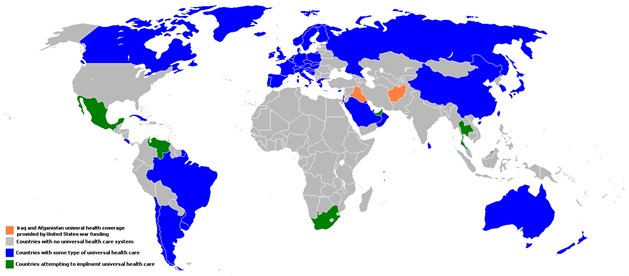No universal health coverage without strong local health systems
This OpED by the Community of Practice “Health Service Delivery” highlights how the universal health coverage will not happen without strengthening local health systems.
4 Mar 2014Despite the current global and national momentum, universal health coverage could remain an empty promise unless it is focussed on the provision of quality essential services to everyone. And this, in turn, will not happen without strengthening local health systems.
More than 25 years ago, the framing was slightly different – primary health care instead of universal health coverage – but the assessment was similar. In Au- gust 1987, the World Health Organization organized an interregional meeting in Harare, Zimbabwe, that resulted in the Declaration on strengthening district health systems based on primary health care (the “Harare Declaration”). In the decades that followed, many actors joined forces to implement the district strategy, which emphasizes the impor- tance of organizing and coordinating health service delivery at the local level.

A quarter of a century later, it is clear that African health systems, particularly in rural areas, have been shaped by these efforts. The district strategy is the backbone of nearly every national health system in Africa; countries are covered by health facilities – organized in a tier system – whose activity pack- ages focus on priority services. However, health indicators are still lagging behind those of most other regions of the world. One reason may be a selective and overly rigid implementation of the health dis- trict strategy.
Much has changed over the past 25 years in Africa and a thorough update of the district health system seems warranted. First, many new contextual factors – including administrative decentralization, market liberalization, increasing urbanization and new tech- nologies – must be taken into account. Second, needs have evolved. Those related to widespread poverty persist, while new ones have emerged or are emerging as a result of evolving epide- miologic trends.
Profound changes at the global level have also affected Africa. One was the adoption of the Millennium Development Goals. While these sparked a renewal of political and financial com- mitment to the health sector, they also triggered a plethora of vertical initia- tives that sometimes undermined local health systems. Theoretical thinking and knowledge have also evolved. For instance, the district model was formal- ized in the eighties, when concepts such as “stewardship”, “governance”, “institu- tional arrangements” and “incentives” were not yet mainstream.
Click here to read the full OpED by the Community of Practice “Health Service Delivery”.
Share this on: